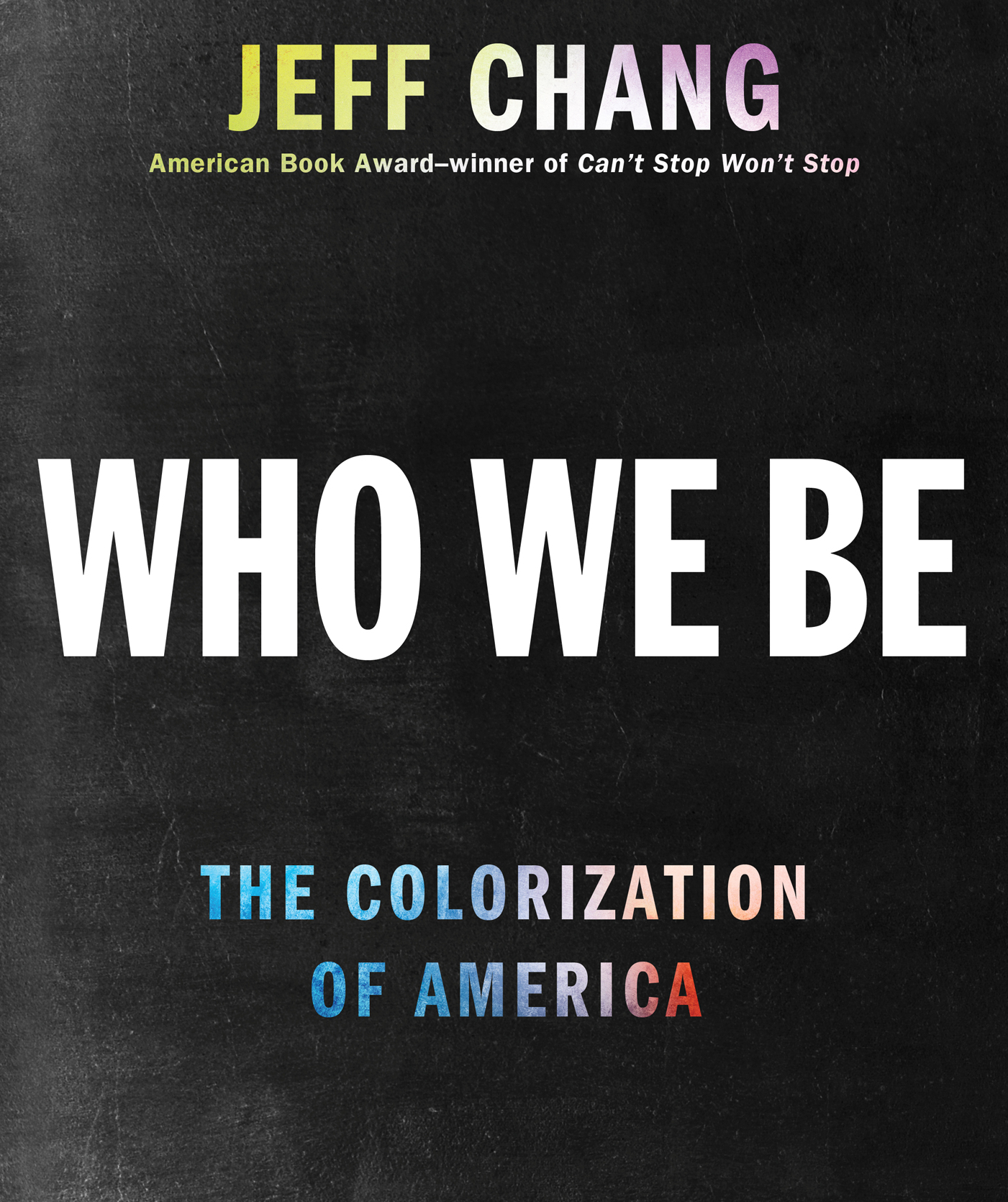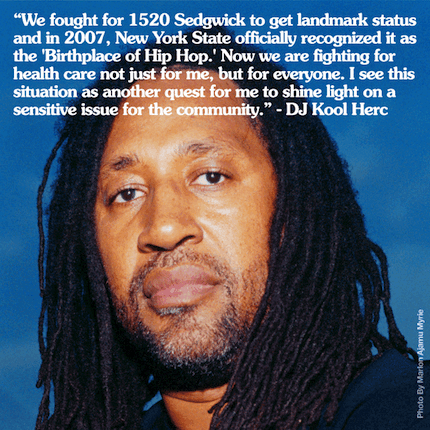
Tuesday, July 1st, 2014
Who We Be + N+1=Summer Reading For You
As you know by now, Who We Be is hitting shelves on October 21st. If you’re feenin, an exclusive excerpt will see the summer light in n+1‘s 20th issue. We are incredibly hyped to have it appear in one of our most favorite magazines.
The issue is due out in late July, just in time to take it to the beach with Crazy Rich Asians or Men Explain Things To Me or At Night We Walk In Circles or Every Day Is For The Thief or whatever kind of reading you enjoy with your salt air.
Enjoy!
And don’t forget to do that thing you do on Facebook–>here.
posted by Jeff Chang @ 1:33 pm | 0 Comments
Thursday, May 3rd, 2012
“I Gotta Be Able To Counterattack” : Los Angeles Rap and The Riots
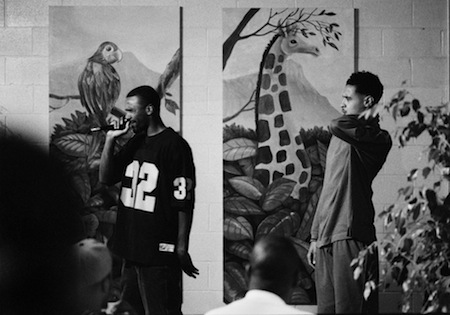
“Once we have a knowledge of self as a people then no devil could ever enter our boundaries.”
Aceyalone and Mykah 9 at the Good Life
Photo by B+ from his forthcoming book, Ghost Notes
Thanks to Oliver Wang, Evan Kindley, and B+, my piece on rap on the Los Angeles riots is up today at that fine institution, the Los Angeles Review of Books. Here’s a teaser…
“PROFILING”: IN THE EARLY 1980s, the street definition of the word was something like “looking fresh and clean.” Most often — as in that party song from the Connecticut crew the Skinny Boyz — “profiling” rhymed with “styling.” It celebrated that moment before the first morning bell after summer break when the schoolyard became a fashion runway, the memory of the summer weekends when the boulevards thrummed sensually, streets filling with tricked-out cars, youths spilling off the sidewalks flirting or trying to get their mack on.
But by 1989, N.W.A.’s “Fuck Tha Police” essayed a new definition of “profiling,” one associated with force, authority, the pathologies of the powerful. That shotgun blast of a song captured all manner of shifts that had taken place: from East Coast to West, revelry to rage, abandonment to containment.
L.A. hip hop, like the punk and skateboarding subcultures of the 1970s, had sprouted from the imaginations of forgotten kids in depopulated urban spaces. They built codes, rules, and vocabularies for themselves to compensate for scarcity and lack. Their play was the organized chaos of the unseen and the unheard.
But with the advent of LAPD Chief Daryl Gates’ Operation Hammer in 1988 those invisible kids moved into the crosshairs, appearing now as dangerous surplus bodies. “Anti-loitering” was the name of the new discourse. Crenshaw and Westwood Boulevard were shut down. Curfews were imposed. Injunctions were prepared. The CRASH units and battering rams occupied the streets.
By 1991, L.A. rap was all tension and little release. …
Read the whole thing here…
posted by Jeff Chang @ 7:00 am | 0 Comments
Friday, January 20th, 2012
Me in LARB + Who We Be Update
After a while it gets difficult not to start every blog post with the opening lines of “I Know You Got Soul”. So cutting to the chase–pretty much the single figure of speech that sums our media desires these days–I’ve been woodshedding for a couple-few years trying to bring this Who We Be: The Colorization of America book to life.
One always has doubts. This book is meant to talk about the rise, fall, and aftermath of multiculturalism through this–cue groans–“post-racial moment” “in the age of Obama”. I can’t remember which scholar I heard 3 years ago talking about how sick she was of every conference presenter adding on the phrase “in the age of Obama” to their title subhead. Zing.
The doubt has of course been conditioned by the weirdness of the topic itself. Like, hip-hop? Then multiculturalism? Um, Jeff, dude, that seems like a step back. Ask Aaron McGruder.
Maybe it is. But I’m a stubborn dude, so here I am now in the 6th year of my obsession with the idea that multiculturalism both succeeded brilliantly and failed horribly and yet most of us don’t know why. Plus the related idea that everyone’s still stuck on either the 60s or the character-content future thing–you know, the “post-racial” America–that’s not coming anytime soon. And the crowning arrogance that if no one knows why and everyone’s avoiding the topic, well then someone oughtta be in your face about it. Then I go and raise my own hand.
I’m getting close now. There’s a bit to go. I may take a beating for it, but now I’m more than ready to bruise anyone who wants to try. Which is not where I was as recently as a month ago.
Nuff solipsism and shit! This is getting embarrassing.
So here’s a new piece–the first in forever– that Sharon Mizota asked me to write. It appears on the fine website the Los Angeles Review of Books, whom you should support.
It’s about Catherine Opie’s new book Inauguration, and so of course, it takes on Obama and the legacy of identity politics, identity art, and multiculturalism. And a couple of other folks whom I probably shouldn’t have taken on.
Believer-style summary: Gratuitous reference to the L Word. Berkeley High slang. Possibly unnecessary nods to Delillo. Begrudging thanks to Klein and Danto. Undoubtedly the first use of the phrase “go ham” on the LARB website.
Anyway. Enjoy!
posted by Jeff Chang @ 10:25 am | 0 Comments
Monday, June 20th, 2011
In Defense Of Libraries
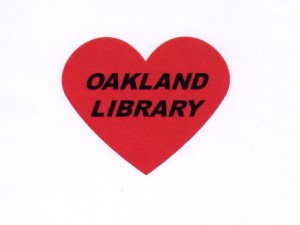 This is from a talk I gave today at a rally to save the Oakland library system from proposed massive closures.
This is from a talk I gave today at a rally to save the Oakland library system from proposed massive closures.
I’ve been thinking a lot about the role of the arts in changing society, the role of culture in moving politics, and the spaces where this kind of cultural change and political change happens.
So I started thinking a lot about used record stores.
In the marketplace they play a really interesting role. Where does pop music go to die? Used record stores. Think of all those copies of The Eagles’ Hotel California you can get for 25 cents.
Where does music go to be reborn? Used record stores. It’s where the crate-diggers, hip-hop producers, guitar-slingers are uncovering old sounds that are blowing their minds and causing them to write the music of the future
So used record stores aren’t just used record stores.
They are morgues and landfills of copyright. They are places of cultural recovery and transmission. They are the creative birthing grounds for pop’s second life.
Basically they are libraries.
Because of this, the used record store becomes an interesting place to think about how we place a value our past and how we make something new of it.
There’s a cultural economy of used record stores, it’s born of the process that goes from record release to the cut-out bin to used record market to crate-digging to revival.
It starts from the moment pop dies—the moment that is the opposite of consumption, the moment of deletion, when a record is cut-out of the catalog, the process when the record falls off the market.
When music is determined to hold no more monetary value, it is deleted. That is where most of our recorded history lies. In the cut-out bin. In the Trash file. Locked behind the copyright fence. Lots of it belongs there like the Eagles. But what about when it doesn’t?
Historically, most artists have not retained ownership of their works, which means that record labels and publishers curate musical histories and cultural legacies. These gatekeepers have the legal power to choose what music can circulate, and what stays out of print.
The situation becomes bleaker with the extension of copyright terms, which has created a class of orphaned music that can’t be legally circulated or preserved because the owners can’t be found or they have gone.
At the same time, because of sampling law, copyright litigation has raised the price of keeping musical genres like hip-hop in print, placing even recent, in-demand records behind the fence. The irrational marketplace for sample clearances also gets between artists in ways that the law never intended, disrupting the transmission of cultural memory.
What we are talking about here plain and simple is market failure. It renders important music inaccessible, especially genres devalued by major labels and publishers, such as jazz, blues, folk, and bluegrass. Even if corporations do not deem this music valuable in an economic sense, it doesn’t mean the music is not valuable to us in the cultural sense.
Enter the collectors, the hipsters, and the DJs. Their rediscovery of musical heritage is a cyclical phenomenon made possible by the deletion of massive amounts of culture. A process we seen repeatedly occurring in Black music, for instance, from the blues to free jazz to funk to disco to hip-hop.
Revivals are what happen at the point where the margin of the marketplace meets the bleeding-edge of hipsterism. It’s lots of fun, but it can also lead to decontextualization and erasure. Where do sagging jeans come from, right? In the cultural economy, in other words, history itself can be deleted.
So on the one hand, you have the market failure that occurs when companies choose to delete records or stop circulating records that have historical or creative importance, music that embodies our human story or music that helps seed new creativity.
Because of market failure, you can’t get De La Soul’s first four albums on iTunes. Nor can you get most of Biz Markie’s albums. You can’t get the complete Def Jam-era Public Enemy boxset Chuck D and the crew put together almost a decade ago.
On the other hand, you have many vital, vibrant and we should note—often legally ambiguous—scenes that pushing further and further the spaces where copyright lapses, the competitive crate-digging subculture, a small galaxy of super-creative musicians, and a bigger galaxy of cool audiences come together to create tomorrow’s mainstream.
Style and the market go hand-in-hand. But there is a larger question, too. One that transcends market value: how do we as a community forge a shared history and how we create a better future for ourselves?
+++++
When I was a teen on a tiny income, I spent as much free time as I possibly could in libraries. In fact, libraries were where I got to form a lot of my musical taste.
On weekends, after spending my McJob money up at Froggies used record store, I’d take the bus down to the library. There was some genius librarian at the Hawai’i State Library who was an uber-hipster. And so that’s where I discovered Robert Johnson, Clyde McPhatter, King Sunny Ade, Gang of Four and Talking Heads.
I’d lug home the cassettes I’d bought along with the vinyl records I’d borrowed from the library, plus crazy books like Robert Christgau’s Consumer Guide, wherein he reviewed a million records in riddling prose, and Stephen Davis’s Reggae International, a splashy book that featured album-sized pictures of Big Youth smoking gynormous spliffs. And then I’d spend hours more with them, seeing and hearing and reading the world.
Those are the kinds of things that make an impression on a young person, develop a youth’s love for words and sounds and people.
These days the Oakland library offers more to teens than I ever had. And I’m glad of that too. We live in neighborhoods where virtually every young person we know will be unemployed this summer. Oakland teen programs are helping youths not just to learn and listen to the world, but to learn to lead, to actively engage in and make the world that they live in together.
And that is the way the world changes—the world changes through the culture first. Cultural change always precedes political change.
People who work in this building behind us might think otherwise, but in reality we are the ones who make it move—those of us who are artists, those of us who are community builders, those of us who support artists and community builders. We change the culture, and politics follows.
The folks who are against us, who are against a vibrant vital public core, know this. The budget cuts inflicted we face here and all around the country are about laying waste to the public space and fencing it off. And they are about stopping cultural change right where it begins.
We are now in an era where they are pushing privatization towards its last frontier: the collective imagination. And we cannot allow that. We have to stop them right here in their tracks.
All used record stores are libraries, but libraries are not used record stores.
When I go into a library, I don’t have to worry about who is holding whose copyrights, why this book didn’t sell enough to continue to be available in any marketplace, how many other stories there are out there that I am missing because the storytellers don’t have the money or the property rights to tell them.
In the library, I am in a space beyond the marketplace, beyond consumption, beyond the money censors, beyond the noise. I am in a place where librarians have accumulated the knowledge and the stories important to me and my community.
The library is the embodiment and the refuge of our collective imagination. In the library, we learn just how big and full of possibility the world is and we build the kindling to fuel our creative fires and to change our culture.
Those two transformative acts are too important just to leave to the playgrounds and the graveyards of the marketplace.
For more information on the plan to close most of the Oakland public libraries and how the community is mobilizing to stop this, please visit Save Oakland Libraries. Special thanks to Amy Sonnie and Ted McCoy.
posted by Jeff Chang @ 12:40 pm | 0 Comments
Wednesday, February 2nd, 2011
The Latest On DJ Kool Herc
The Official DJ Kool Herc website is now live. Visit here to donate and learn the latest.
Here is a roundup some of the best stories:
+ ABC News
+ New York Times
+ MTV News
And these editorials:
+ Angus Batey in The Guardian
+ Davey D
posted by Jeff Chang @ 8:35 am | 0 Comments
Monday, January 31st, 2011
Support DJ Kool Herc
Over the weekend, DJ Kool Herc took ill.
He is without health insurance and facing enormous hospital bills.
Hip-hop has to take care of its pioneers.
If you love this movement, do what you can.
Donations are being accepted now at:
Kool Herc Productions
PO Box 20472
Huntington Station, NY 11746
Paypal: cindycampbell1@aol.com
More information coming soon.
posted by Jeff Chang @ 8:45 am | 0 Comments
Tuesday, January 11th, 2011
A History Of Hate: Political Violence In Arizona
From Alto Arizona and NDLON
Because Loughner’s motives are not really the point.
Because the partisan infighting is not really the point.
Because incivility past the threshold of dehumanization IS the point.
posted by Jeff Chang @ 9:53 am | 0 Comments
Monday, December 6th, 2010
Culture Before Politics :: Why Progressives Need Cultural Strategy
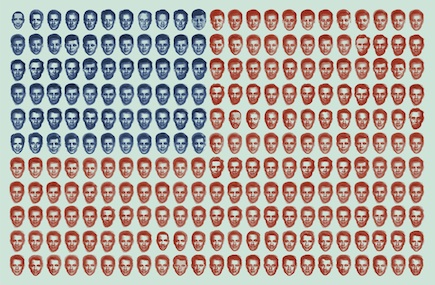
Art by Hyperakt
Brian Komar of the Center For American Progress and I teamed up for this new piece in The American Prospect, making the case that progressives need to build the infrastructure to support cultural strategy and cultural organizing.
Here’s an excerpt:
On Nov. 3, progressives awoke to find that they had returned to 2004. Despite important legislative victories, Democrats had been outflanked. Republicans had successfully sold themselves as the party of economic growth, the party of the angry out-of-work American, and, most dissonantly, the party of change. They owned the narrative and won big.
It wasn’t supposed to be like this. In the dark days following George W. Bush’s re-election, frustrated progressives set out to build an enduring movement that would effectively advance and communicate their ideas, policies, and values. Funders and strategists created new institutions and scaled up existing ones, including think tanks, civic-engagement organizations, and media-watchdog groups. These institutions played a key role in the 2006 Democratic takeover of Congress, the 2008 election of President Barack Obama, and the passage of parts of the Obama platform in 2009 and 2010.
Yet as progressives watched Democrats suffer the worst election loss since the Republican collapse of 1948, they seemed to be back where they started. Just as in 2004, many have blamed the losses on ineffective Democratic campaign messaging.
The problem, however, runs much deeper. Electoral and Beltway politics are episodic, short-term, and transactional. Movements, however, are long-term. “Public sentiment is everything,” Abraham Lincoln once said. “With public sentiment, nothing can fail; without it nothing can succeed. Consequently, he who moulds public sentiment goes deeper than he who enacts statutes or pronounces decisions. He makes statutes and decisions possible or impossible to be executed.” In other words, movements must change hearts and minds in an enduring way. They must change the culture.
Culture is the space in our national consciousness filled by music, books, sports, movies, theater, visual arts, and media. It is the realm of ideas, images, and stories — the narrative in which we are immersed every day. It is where people make sense of the world, where ideas are introduced, values are inculcated, and emotions are attached to concrete change.
Cultural change is often the dress rehearsal for political change. Or put in another way, political change is the final manifestation of cultural shifts that have already occurred.
Jackie Robinson’s 1947 Major League Baseball debut preceded Brown v. Board of Education by seven years. Ellen DeGeneres’ coming-out on her TV sitcom preceded the first favorable court ruling on same-sex marriage by eight years. Until progressives make culture an integral and intentional part of their theory of change, they will not be able to compete effectively against conservatives…
Read the entire piece here.
posted by Jeff Chang @ 5:50 pm | 1 Comment
Friday, November 5th, 2010
It’s Bigger Than Politics :: My Thoughts On The 2010 Elections
Hey fam, if you hadn’t seen it yet, Jamilah King from Colorlines interviewed me the other day for some of my thoughts on the 2010 election. The article is up here.
Here’s a teaser:
First, let’s get some historical context. What makes this political moment so potentially galvanizing for young voters of color? Aren’t we supposed to be “post-racial”?
The culture wars are back, and they have targeted a new generation. To me, Sharron Angle’s “you look Asian to me” moment was a perfect example. Pundits and bloggers focused on the stupidity of her comment, but the discussion was prompted by a Chicano student who was calling her out on her anti-immigration commercials that featured criminalized brown youths. Angle’s defense—I’m so colorblind, I can’t even tell what race you are—was not just hilarious, it was brutal in its dishonesty. The ads that the students objected to were far from colorblind.
For the right, this election proved—from Rand Paul to Jan Brewer—that racialized appeals to older white voters still mobilize, that the culture wars still work. The upside is that in Nevada, Chicano and Latino voters and young voters flipped the race for (Harry) Reid, who had been several points down in the days leading up to the election. Read more
posted by Jeff Chang @ 7:05 am | 0 Comments
Sunday, October 24th, 2010
New In The Reader: WHO WE BE PREVIEW + Uncle Jamm’s Army
Check The Reader for two new pieces:
+ A recent piece I did on Obama and race in the U.S. at the mid-point of his first term for the Brazilian weekly magazine, Ilustríssima. The piece also captures some of the themes and topics of my new book, Who We Be: The Colorization of America.
+ An extensive transcript of an interview Mike Nardone and I did for Rap Pages with Rodger “Uncle Jamm” Clayton, Egyptian Lover, and Iceberg of Uncle Jamm’s Army in 1994. Plus you can download a copy of the original article with design by Brent Rollins! We repost it now in tribute to one of the most important figures in West Coast rap. RIP Uncle Jamm.
posted by Jeff Chang @ 4:28 pm | 0 Comments
Previous Posts
- Who We Be + N+1=Summer Reading For You
- “I Gotta Be Able To Counterattack” : Los Angeles Rap and The Riots
- Me in LARB + Who We Be Update
- In Defense Of Libraries
- The Latest On DJ Kool Herc
- Support DJ Kool Herc
- A History Of Hate: Political Violence In Arizona
- Culture Before Politics :: Why Progressives Need Cultural Strategy
- It’s Bigger Than Politics :: My Thoughts On The 2010 Elections
- New In The Reader: WHO WE BE PREVIEW + Uncle Jamm’s Army
Feed Me!
Revolutions
- DJ Nu-Mark :: Take Me With You
DJ Nu-Mark remixes the diaspora…party ensues! - El General + Various Artists :: Mish B3eed : Khalas Mixtape V. 1
The crew at Enough Gaddafi bring the most important mixtape of 2011–the street songs that launched the Tunisian & Egyptian Revolutions… - J. Period + Black Thought + John Legend :: Wake Up! Radio mixtape
Remixing the classic LP w/towering contributions from Rakim, Q-Tip + Mayda Del Valle - Lyrics Born :: As U Were
Bright production + winning rhymes in LB’s most accessible set ever - Model Minority :: The Model Minority Report
The SoCal Asian American rap scene that produced FM keeps surprising… - Mogwai :: Hardcore Won't Die But You Will
Dare we call it majestic? - Taura Love Presents :: Picki People Volume One
From LA via Paris with T-Love, the global post-Dilla generation goes for theirs…
Word
- Cormac McCarthy :: Blood Meridian
Read this now before Hollywood f*#ks it up. - Dave Tompkins :: How To Wreck A Nice Beach
Book of the decade, nuff said. - Joe Flood :: The Fires
The definitive account of why the Bronx burned - Mark Fischer :: Capitalist Realism
K-Punk’s philosophical manifesto reads like his blog, snappy and compelling. Just replace pop music with post-post-Marxism. Pair with Josh Clover’s 1989 for the full hundred. - Nell Irvin Painter :: The History of White People
Well worth a Glenn Beck rant…and everyone’s scholarly attention - Robin D.G. Kelley :: Thelonious Monk : The Life And Times Of An American Original
Monk as he was meant to be written - Tim Wise :: Colorblind
Wise’s call for a color-conscious agenda in an era of “post-racial” politics is timely - Victor Lavalle :: Big Machine
Victor Lavalle does it again!
Fiyahlinks
- ++ Total Chaos
The acclaimed anthology on the hip-hop arts movement - ARC
- Asian Law Caucus | Arc of 72
- AWOL Inc Savannah
- B+ | Coleman
- Boggs Center
- Center For Media Justice
- Center For Third World Organzing
- Chinese For Affirmative Action
- Color of Change
- ColorLines
- Dan Charnas
- Danyel Smith
- Dave Zirin
- Davey D
- Disgrasian
- DJ Shadow
- Elizabeth Mendez Berry
- Ferentz Lafargue
- Giant Robot
- Hip-Hop Theater Festival
- Hua Hsu
- Humanity Critic
- Hyphen Magazine
- Jalylah Burrell
- Jay Smooth
- Joe Schloss
- Julianne Shepherd
- League of Young Voters
- Lyrics Born
- Mark Anthony Neal
- Nate Chinen
- Nelson George
- Okay Player
- Oliver Wang + Junichi Semitsu :: Poplicks
- Pop + Politics
- Presente
- Quannum
- Raquel Cepeda
- Raquel Rivera
- Rob Kenner
- Sasha Frere-Jones
- The Assimilated Negro
- Theme Magazine
- Toure
- Upper Playground
- Wayne Marshall
- Wiretap Magazine
- Wooster Collective
- Youth Speaks
@zentronix
- No public Twitter messages.
Come follow me now...
Archives
- July 2014
- May 2012
- January 2012
- June 2011
- February 2011
- January 2011
- December 2010
- November 2010
- October 2010
- September 2010
- August 2010
- June 2010
- May 2010
- April 2010
- March 2010
- February 2010
- December 2009
- November 2009
- October 2009
- September 2009
- August 2009
- July 2009
- June 2009
- May 2009
- February 2009
- January 2009
- December 2008
- November 2008
- October 2008
- September 2008
- August 2008
- July 2008
- June 2008
- May 2008
- April 2008
- March 2008
- February 2008
- January 2008
- December 2007
- November 2007
- October 2007
- September 2007
- August 2007
- July 2007
- June 2007
- May 2007
- April 2007
- March 2007
- February 2007
- January 2007
- December 2006
- November 2006
- October 2006
- September 2006
- August 2006
- July 2006
- June 2006
- May 2006
- April 2006
- March 2006
- February 2006
- January 2006
- December 2005
- November 2005
- October 2005
- September 2005
- August 2005
- July 2005
- June 2005
- May 2005
- April 2005
- March 2005
- February 2005
- January 2005
- December 2004
- November 2004
- October 2004
- September 2004
- August 2004
- July 2004
- June 2004
- May 2004
- April 2004
- March 2004
- February 2004
- January 2004
- December 2003
- November 2003
- October 2003
- September 2003
- August 2003
- July 2003
- June 2003
- May 2003
- April 2003
- March 2003
- February 2003
- January 2003
- December 2002
- November 2002
- October 2002
- September 2002
- August 2002
- July 2002
- June 2002
We work with the Creative Commons license and exercise a "Some Rights Reserved" policy. Feel free to link, distribute, and share written material from cantstopwontstop.com for non-commercial uses.
Requests for commercial uses of any content here are welcome: come correct.

